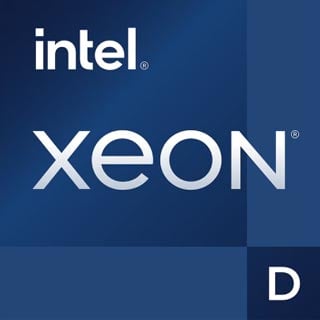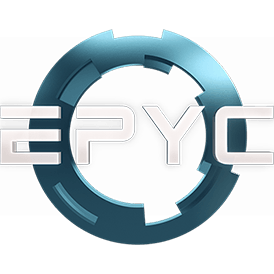
Comparez AMD EPYC 7573X VS Intel Xeon D-2798NT. Which processor delivers superior performance?
In this detailed comparison, we evaluate the specifications and benchmarks of both processors to determine the best choice for your needs. We analyze their core counts, maximum frequencies, and power consumption.
AMD EPYC 7573X boasts a maximum frequency of 2.80 GHz GHz. 32 / 64 cores that enhance multitasking capabilities.With a power consumption of 280 W W, it ensures efficient performance.Sorti en Q2/2022, it incorporates the latest technology for optimal efficiency.
Intel Xeon D-2798NT features a maximum frequency of 2.10 GHz GHz. 20 / 40 cores designed for high-performance tasks.Its power consumption is 125 W W, providing a balance of power and efficiency.Launched in Q1/2022, it is built to handle demanding applications.
 Raisons de considérer
Raisons de considérer Vitesse d'horloge plus élevée
Autour de 25% une meilleure vitesse d'horloge
Plus grand nombre de cœurs
12 Plus de cœurs
Vitesse d'horloge turbo plus élevée
Autour de 14% meilleure vitesse d'horloge overclockée
Positions communes AMD EPYC 7573X CPU dans des benchmarks populaires, pour comparaison avec d'autres modèles.
No data Raisons de considérer
Raisons de considérer Performance par watt
About 0.45 moins de chaleur générée par le processeur, W.
Positions communes Intel Xeon D-2798NT CPU dans des benchmarks populaires, pour comparaison avec d'autres modèles.
No data AMD EPYC 7573X
AMD EPYC 7573X

Comprehensive background on the processors being compared, detailing their series, generation, and targeted market segment.
Essential parameters including the number of cores, threads, base and turbo frequencies, and cache size. These metrics provide insight into the processor’s speed—higher values generally indicate better performance.
The integrated graphics (iGPU) do not influence the CPU performance significantly; they serve as a substitute for a dedicated graphics card in the absence of one or are utilized in mobile devices.
This section details the built-in codecs used for encoding and decoding media content, which significantly enhance processing speed and efficiency.
Overview of the types and quantities of RAM supported by Intel Xeon D-2798NT et AMD EPYC 7573X. The supported memory frequencies may vary depending on the motherboard configuration.
Analyze the TDP (Thermal Design Power) requirements of AMD EPYC 7573X et Intel Xeon D-2798NT to make an informed decision on the appropriate cooling system. Remember that TDP refers to thermal watts, not electrical watts.
Information on architecture, interfaces, and additional instructions supported by AMD EPYC 7573X et Intel Xeon D-2798NT, including virtual machine technologies and fabrication processes.
By analyzing the results from various benchmarks, you can gain a clearer understanding of the performance differences between AMD EPYC 7573X et Intel Xeon D-2798NT.
Compare the synthetic benchmark scores and make an informed decision on the best processor for your needs!